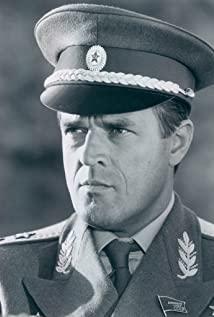Talking about defects, there are:
1. Due to excessive compromise, as the film progresses, the logic of the script becomes weaker and weaker (of course the characters can be without logic, but the events and perspectives must be logical): we cannot see the derivation of emotions and Performance;
2. Bei Jiujiao directly enters the Ode to Joy in the fourth movement, lacking the previous andante and presto allegro foreshadowing. I think a lot of the impact of the original is wasted (the timpani in the second movement is so shocking, it is a pity not to choose it);
3. (personally) The Tempest (Op.31: Sonata No.17 The Tempest), which has both difficulty and emotion, and the three movements are perfect, was not chosen
; redundant explanation. It may be a better choice to leave the film's perspective entirely to the student union;
5. The last key person in the biography that I have read is set as a sister-in-law, which is an overhead, and the lack of a close-up in the front is really hot to turn into the protagonist;
6. must it be it must be, in my memory, it is too much to say that you have a child in me and the triple performance of pregnancy vomiting...
but Pathetique II (Op.13: Sonata No.8 Pathetique II. Adagio cantabile) is convincing; GO performance is not In other words, trembling at the touch of the keys is very in line with the habit of people who are devoted to the piano. His Beethoven is better than that of Hugh Grant's Chopin in Impromptu (Liszt in Julian Sands is too hilarious); i shall have to beat u there. The expression and coherence of the matching expressions, as well as the scene switching and editing after the beat are beautiful; in addition, among the three women, I like the setting of the countess very much, and the tone and costume design highly restore the feminist ideas that sprouted in the early 19th century. (Class of George Sand).
All in all, it is an anticlimactic and irresponsible editing, which not only wants to replicate the recognition that amedeus received ten years ago, but also compromises to market demand. Films can of course be commercialized, and it makes sense to fill the majority cultural market; but since they inevitably feature great art as an important part, they also face criticism or disappointment from those who truly value art.
Of course, Beethoven is indispensable in the film. I have heard it since I was a child, and of course it is also quoted by piano teachers all over the world: making a mistake is insignificant, but playing wizout passion is inexcusable. (translated in the film as a mistake is nothing, blah blah blah, u lack of passion is unforgivable, where i shall beat u)
Christopher
—————————————————————
Attachment: Let
’s talk about music,
in addition to the above and the video , I also recommend the following duet duet works that may not be as famous as Schubert's Trio Trio but are extremely melodious. Their characteristics are in my words like a love, and they are very suitable for performance and rehearsal (showing affection) (there are scores on Taobao) , and even some shadows of Mo can be heard from it:
violin and piano sonatas Spring Allegro and Rondo (Op.24: Sonata for Violin and Piano No.5 Spring): Allegro recommends David Garrett's version that integrates the prodigy, fresh meat and gods / Rondo recommends the faster version of Jascha Heifetz
The second violin and piano sonata Allegro (Op.12 Sonata for Violin and Piano No.2 I.Allegro): Recommended Martha Argerich feat. Gidon Kremer "Sister" Argerich and Kleiman joined forces to do not explain. .
3rd Violin Sonata Allegro (Op.12 Sonata for Violin and Piano No.3 I.Allegro): Also recommended by Martha Argerich feat. Gidon Kremer
View more about Immortal Beloved reviews











